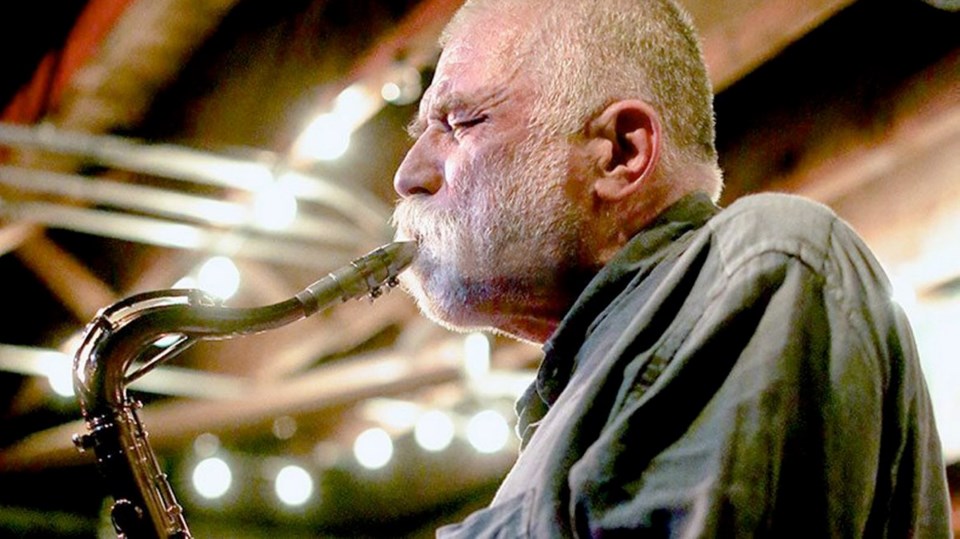What: Peter Brötzmann
When: Tuesday, 9 p.m.
Where: Copper Owl, 1900 Douglas St.
Tickets: $15
Documentaries have been made about him. Books chronicling his contributions to jazz have been published, prompting high praise from pundits. And while neither won an Oscar or Pulitzer, their existence speaks volumes, especially when you consider that Peter Brötzmann is largely unknown outside jazz circles.
Brötzmann, 74, is regarded among the greatest living proponents of free jazz, a progressive, improvisational strain of music defined by its avant-garde approach and refusal to conform. The reedist, who is proficient on both saxophone and clarinet, pioneered the European free jazz scene of the 1960s, one that still reverberates today. And he did so while stationed largely out of the spotlight in his home of Wuppertal, Germany, near Düsseldorf.
The iconoclast definitely broke ground, though he never fully broke through, at least in terms of wider exposure. Which does not seem to bother the congenial Brötzmann one bit.
“I have my material and my way of way of playing, and I think I can do certain things that really belong to me,” Brötzmann said during a recent tour stop in Oakland.
“And I think I’ve had a chance over the decades to develop my personal voice. A big part of art, whatever that is, is handcraft. You have to have some skills, you have to develop your own technique.
“Even if I don’t know how to start or what to start with, I always can get back to what I know. Interesting things start when you work with what you have and change it around.”
Over the decades, he changed the field of jazz dramatically, and once served as the pre-eminent European counterpart to American free-jazz precursors Pharoah Sanders, Ornette Coleman, Charles Mingus and John Coltrane. Heavy comparisons, indeed. But once his career began in 1959, when he was just 18, Brötzmann knew he was destined to be different.
He considered free improvisation — in all its angular, aggressive forms — the only way to make honest music.
“That’s what music is about,” he said. “Tension between [musicians] and tension between the audience.”
He found success with 1968’s Machine Gun, his first recording at the helm of the Peter Brötzmann Octet. The album earned praise for everyone involved, and has since been deemed one of the key jazz releases of the ’60s. Further recordings by Brötzmann were no less acclaimed, but as music tastes changed, so did the public’s affinity for Brötzmann’s type of jazz.
While revered, he is now the king of an ever-decreasing hill.
“Not recommended for small children or pregnant women,” wrote one critic of Brötzmann’s music.
“The sound of flesh being torn from a spindly set of bones,” said another. Yet more still: “Much like standing outside during a violent storm.”
“Ten 50-foot chainsaws attached to flaming rotor blades in the middle of a railroad destruction derby.”
And these were the rave reviews.
He finds great comfort in his live performances, however.
“The main thing where you develop the music is on the road. Making records is an important [part] of the whole work, but the main thing is being on the road. That is where you learn things, meet new people, different audiences. The exchange of ideas happens there. And that’s the most important thing for me.”
Brötzmann will appear Tuesday at the Copper Owl, in a rare capacity: Solo. Audiences can expect to find the German in fine, freewheeling form. He will play tenor sax, clarinet and the taragato, a single-reed Hungarian folk music instrument. And he will do so in one long-form exhale, the sonics of which will likely send audience members looking for a new set of superlatives.
For his part, Brötzmann will deliver. He expects the attendees will be equally up to the task.
“To get in touch, to make a connection with the audience, is very important. If you play solo, you don’t have your comrades on your side, so you have to build up the tension and make a connection with the audience. In that case, the audience plays a very important role.”



